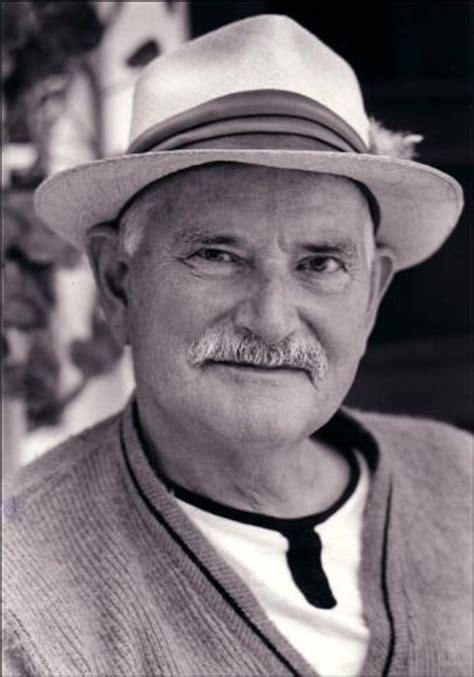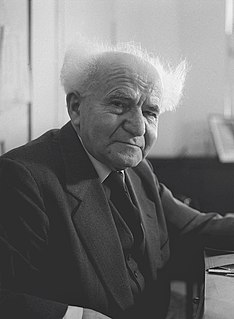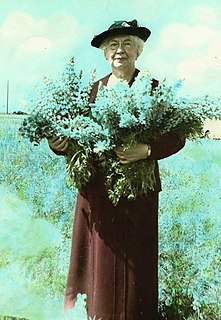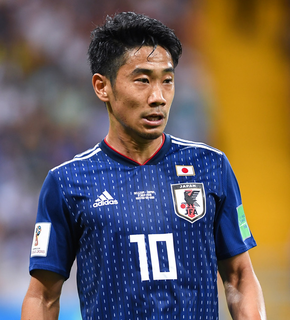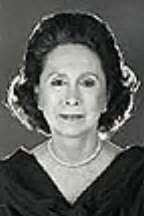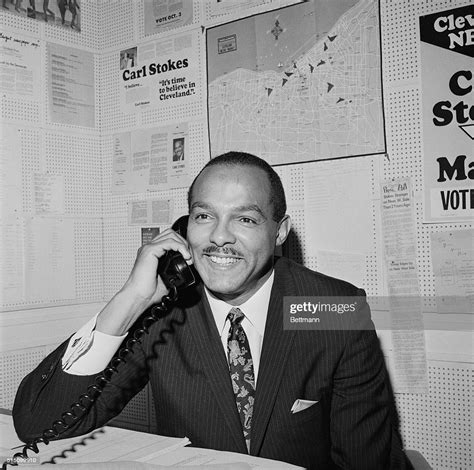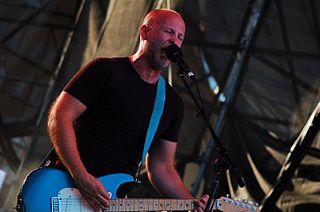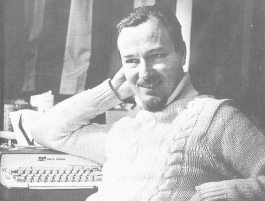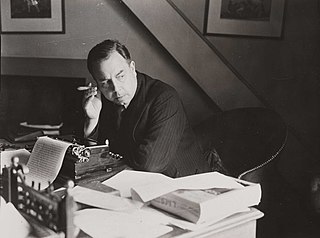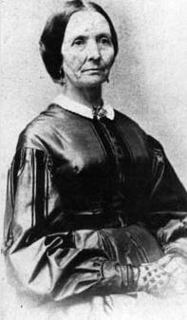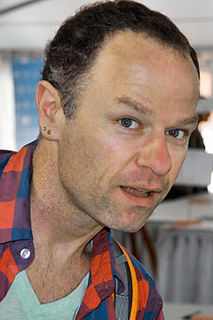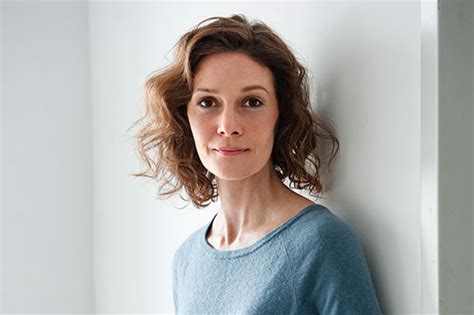Top 1200 Ourselves Quotes & Sayings - Page 20
Explore popular Ourselves quotes.
Last updated on April 21, 2025.
What nonsense it is, this desire to be without limitations, this wish always to be seen in the most flattering light. We are anxious, not because we think so little of ourselves, but because we think so much of ourselves. We are anxious, not that we may appear in the worst light, but that we may not appear in the best light. Anxiety is born of self-consciousness, and it is alleviated to the exact extent that we can drop consciousness of the self.
The greatest barrier to own own healing is not the pain, sorrow or violence inflicted upon us as children. Our greatest hindrance is our ongoing capacity to judge, to criticize, and to bring tremendous harm to ourselves. If we can harden our heart against ourselves and meet our most tender feelings with anger and condemnation, we simultaneously armor our heart against the possibility of gentleness, love and healing.
We patronize the animals for their incompleteness, for their tragic fate of having taken form so far below ourselves. And therein we err, and greatly err. For the animal shall not be measured by man. In a world older and more complete than ours, they are more finished and complete, gifted with extensions of the senses we have lost or never attained, living by voices we shall never hear. They are not brethren, they are not underlings; they are other Nations, caught with ourselves in the net of life and time.
Perhaps because the origins of a certain kind of love lie in an impulse to escape ourselves and out weaknesses by an alliance with the beautiful and noble. But if the loved ones love us back, we are forced to return to ourselves, and are hence reminded of the things that had driven us into love in the first place. Perhaps it was not love we wanted after all, perhaps it was simply someone in whom to believe, but how can we continue to believe the the beloved now that they believe in us?
Of course, we carry inside of ourselves our parents. Even when they are dead, we carry them inside ourselves. And they are carrying inside themselves their dead parents and so on and so forth. There is a legacy of language and culture and religion. In some cases, family stories told by grandparents to little grandchildren. When I say my novels are set in Israel in the last seventy years, this entails the fact that they begin hundreds or thousands of years earlier in time. Everybody comes from somewhere.
We lift ourselves by our thought, we climb upon our vision of ourselves. If you want to enlarge your life, you must first enlarge your thought of it and of yourself. Hold the ideal of yourself as you long to be, always, everywhere - your ideal of what you long to attain - the ideal of health, efficiency, success.
What have we got here in America that we believe we cannot live without? We have the most varied and imaginative bathrooms in the world, we have kitchens with the most gimmicks, we have houses with every possible electrical gadget to save ourselves all kinds of trouble - all so that we can have leisure. Leisure, leisure, leisure! So that we don't go mad in the leisure, we have color TV. So that there will never, never, be a moment of silence, we have radio and Muzak. We can't stand silence, because silence includes thinking. And if we thought, we would have to face ourselves.
It seemed an advantage to be traveling alone. Our responses to the world are crucially moulded by the company we keep, for we temper our curiosity to fit in with the expectations of others...Being closely observed by a companion can also inhibit our observation of others; then, too, we may become caught up in adjusting ourselves to the companion's questions and remarks, or feel the need to make ourselves seem more normal than is good for our curiosity.
We forgive, if we are wise, not for the other person, but for ourselves. We forgive, not to erase a wrong, but to relieve the residue of the wrong that is alive within us. We forgive because it is less painful than holding on to resentment. We forgive because without it we condemn ourselves to repeating endlessly the very trauma or situation that hurt us so. We forgive because ultimately it is the smartest action to take on our own behalf. We forgive because it restores to us a sense of inner balance.
It's never been true, not anywhere at any time, that the value of a soul, of a human spirit, is dependent on a number on a scale. We are unrepeatable beings of light and space and water who need these physical vehicles to get around. When we start defining ourselves by that which can be measured or weighed, something deep within us rebels. We don't want to EAT hot fudge sundaes as much as we want our lives to BE hot fudge sundaes. We want to come home to ourselves.
Woman is the future of man. That means that the world which was once formed in man's image will now be transformed to the image of woman. The more technical and mechanical, cold and metallic it becomes, the more it will need the kind of warmth that only the woman can give it. If we want to save the world, we must adapt to the woman, let ourselves be led by the woman, let ourselves be penetrated by the Ewigweiblich, the eternally feminine!
We hypostatize information into objects. Rearrangement of objects is change in the content of the information; the message has changed. This is a language which we have lost the ability to read. We ourselves are a part of this language; changes in us are changes in the content of the information. We ourselves are information-rich; information enters us, is processed and is then projected outward once more, now in an altered form. We are not aware that we are doing this, that in fact this is all we are doing.
Let's have a merry journey, and shout about how light is good and dark is not. What we should do is not future ourselves so much. We should now ourselves. "Now thyself" is more important than "know thyself." Reason is what tells us to ignore the present and live in the future. So all we do is make plans. We think that somewhere there are going to be green pastures. It's crazy. Heaven is nothing but a grand, monumental instance of future. Listen, now is good. Now is wonderful.
All of us are responsible to provide for ourselves and our families in both temporal and spiritual ways. To provide providently, we must practice the principles of provident living: joyfully living within our means, being content with what we have, avoiding excessive debt, and diligently saving and preparing for rainy-day emergencies. When we live providently, we can provide for ourselves and our families and also follow the Savior's example to serve and bless others.
The bone's 6 inches out of his leg and all he's yelling is, 'Win the game, win the game.' I've not seen that in my life. Pretty special young man. I don't think we could have gathered ourselves - I know I couldn't have - if Kevin didn't say over and over again, 'Just go win the game,' I don't think we could have gone in the locker room with a loss after seeing that. We had to gather ourselves. We couldn't lose this game for him. We just couldn't.
When we say that the Arabs are the aggressors and we defend ourselves — this is only half the truth. As regards our security and life we defend ourselves and our moral and physical position is not bad. We can face the gangs... and were we allowed to mobilize all our forces we would have no doubts about the outcome... But the fighting is only one aspect of the conflict which is in its essence a political one. And politically we are the aggressors and they defend themselves. Militarily, it is we who are on the defensive who have the upper hand but in the political sphere they are superior.
Whether the mask is labeled fascism, democracy, or dictatorship of the proletariat, our great adversary remains the apparatus—the bureaucracy, the police, the military. Not the one facing us across the frontier of the battle lines, which is not so much our enemy as our brothers' enemy, but the one that calls itself our protector and makes us its slaves. No matter what the circumstances, the worst betrayal will always be to subordinate ourselves to this apparatus and to trample underfoot, in its service, all human values in ourselves and in others.
One of the great tragedies of life, it seems to me, is when a person classifies himself as someone who has no talents or gifts. When, in disgust or discouragement, we allow ourselves to reach depressive levels of despair because of our demeaning self-appraisal, it is a sad day for us and a sad day in the eyes of God. For us to conclude that we have no gifts when we judge ourselves by stature, intelligence, grade-point average, wealth, power, position, or external appearance is not only unfair but unreasonable.
If we took just 5 minutes to recognize each other's beauty, instead of attacking each other for our differences. That's not hard. It's really an easier and better way to live. And ultimately, it saves lives. Then again, it's not easy at all. It can be the hardest thing, because loving other people starts with loving ourselves and accepting ourselves. I know many of you have struggled with this. I draw upon your strength and your support, and have, in ways you will never know.
When we are really honest with ourselves we must admit that our lives are all that really belong to us, so it is how we use our lives that determines what kind of men we are. It is my deepest belief that only by giving life do we find life, that the truest act courage, the strongest act of manliness is to sacrifice ourselves for others in a totally non-violent struggle for justice. To be a man is to suffer for others, God help us to be men.
To get a person's real opinion, ask what she thinks everyone else believes... If people truly hold a particular belief, they are more likely to think that others agree or have had similar experiences. [People] tend to assume that other people have had life histories at least somewhat similar to their own. When we talk about other people, we are often talking about ourselves, whether we know it ourselves.
The essence of love and compassion is understanding, the ability to recognize the physical, material, and psychological suffering of others, to put ourselves "inside the skin" of the other. We "go inside" their body, feelings, and mental formations, and witness for ourselves their suffering. Shallow observation as an outsider is not enough to see their suffering. We must become one with the subject of our observation. When we are in contact with another's suffering, a feeling of compassion is born in us. Compassion means, literally, "to suffer with."
I began thinking about why am I constructing almost a shadow father or ghost father in my head into Graham Greene in response to the father who created me? What's going on here? I think a part of my sense is it's every boy's story. When we are kids, we imagine that to define ourselves or to find ourselves means charting your own individuality, making your own destiny and actually running away from your parents and your home and what you grew up with.
Suffer not yourselves to be betrayed with a kiss. Ask yourselves how this gracious reception of our petition comports with those warlike preparations which cover our waters and darken our land. Are fleets and armies necessary to a work of love and reconciliation? Have we shown ourselves so unwilling to be reconciled, that force must be called in to win back our love? Let us not deceive ourselves, sir. These are the implements of war and subjugationthe last arguments to which kings resort.
You can give without loving, but you can never love without giving. The great acts of love are done by those who are habitually performing small acts of kindness. We pardon to the extent that we love. Love is knowing that even when you are alone, you will never be lonely again. & great happiness of life is the conviction that we are loved. Loved for ourselves. & even loved in spite of ourselves.
I told her, "We have both lost ourselves, but sometimes we reveal the most when we are least like ourselves. I am not trying to think any more. I can't think when I am with you. You are like me, wishing for a perfect moment, but nothing too long imagined can be perfect in a worldly way. Neither one of us can say just the right thing. We are overwhelmed. Let us be overwhelmed. It is so lovely, so lovely. I love you June.
Sorrow is God's plowshare that turns up and subsoils the depths of the soul, that it may yield richer harvests. If we had never fallen, or were in a glorified state, then the strong torrents of Divine joy would be the normal force to open up all our souls' capacities; but in a fallen world, sorrow, with despair taken out of it, is the chosen power to reveal ourselves to ourselves. Hence it is sorrow that makes us think deeply, long, and soberly.
We ourselves, though we're guilty of every sin, are not just a work of God: we're image. Yet we have cut ourselves off from our Creator in both soul and body. Did we get eyes to serve lust, the tongue to speak evil, ears to hear evil, a throat for gluttony, a stomach to be gluttony's ally, hands to do violence, genitals for unchaste excesses, feet for an erring life? Was the soul put in the body to think up traps, fraud, and injustice? I don't think so.
In wishing to know ourselves fully, we must forget our quest for gain and seek only completion. At a certain point in our development, we no longer even seek to become Mystic, Magister, Sorcerer, or Witch: we seek only our own perfection in the wholeness of our Will, in the joining of light with dark and strength with love. We are varied and gorgeous yet pure of heart. Our aim is this: to know ourselves and to know the world.
We travel, initially, to lose ourselves; and we travel, next to find ourselves. We travel to open our hearts and eyes and learn more about the world than our newspapers will accommodate. We travel to bring what little we can, in our ignorance and knowledge, to those parts of the globe whose riches are differently dispersed. And we travel, in essence, to become young fools again- to slow time down and get taken in, and fall in love once more.
Most people confuse the "now" with what is happening to them in the now. Actually what is happening to you now has nothing to do with the present moment itself. If you were to suddenly die the present moment would remain. The problem occurs when we attach in our minds with what is happening to "us" presently. This is simply a mental construct that we have created ourselves. It is much like a grievance, either real or imagined. If we attach to grievances we are constantly inflicting suffering on ourselves, not the other party.
There are sacred moments in life when we experience in rational and very direct ways that separation, the boundary between ourselves and other people and between ourselves and Nature, is illusion. Oneness is reality. We can experience that stasis is illusory and that reality is continual flux and change on very subtle and also on gross levels of perception . . . When people bother you in any way, it is because their souls are trying to get your divine attention and your blessing.
Our business in life is not to get ahead of others but to get ahead of ourselves; to break our own records; to outstrip our yesterdays by our todays; to bear our trials more beautifully than we ever dreamed we could; to give as we never have given; to do our work with more force and a finer finish than ever. This is the true idea: to get ahead of ourselves.
The right to the city is far more than the individual liberty to access urban resources: it is a right to change ourselves by changing the city. It is, moreover, a common rather than an individual right since this transformation inevitably depends upon the exercise of a collective power to reshape the processes of urbanization. The freedom to make and remake our cities and ourselves is, I want to argue, one of the most precious yet most neglected of our human rights.
The question we must ask ourselves as a culture is whether we want to embrace the change that must come, or resist it. Are we so attached to the dietary fallacies with which we were raised, so afraid to counter the arbitrary laws of eating taught to us in childhood by our misinformed parents, that we cannot alter the course they set us on, even if it leads to our own ruin? Does the prospect of standing apart or encounttering ridicule scare us even from saving ourselves?
It is only when we want to take our lives out of the Father’s hands and have them under our own control that we find ourselves gripped with anxiety. The secret of freedom from anxiety is freedom from ourselves and abandonment of our own plans. But that spirit emerges in our lives only when our minds are filled with the knowledge that our Father can be trusted implicitly to supply everything we need.
All work, the genuine work which we must achieve, is that which is most difficult and painful: the work on ourselves. If we do not freely take upon ourselves this pre-acceptance of the pain and torment, they will be visited upon us in an otherwise necessary individual and universal collapse. Anyone disassociated from his origin and his spiritually sensed task acts against origin. Anyone who acts against it has neither a today nor a tomorrow.
It reset and mended my freshly damaged and distorted view of life, and made me recognize that this thing we call music, this primal expression that we reshape and refine and define ourselves with, is the gift I was given. The ability to communicate what others feel but cannot fully express, the passing down and around of songs and stories, from Pete Townshend to Joey Ramone to me, to the audiences who take the time and effort to support our work and give us a way to support ourselves -- I'm thinking this is what I am supposed to be doing.
You are a child of God, small games do not work in this world. For those around us to feel peace, it is not example to make ourselves small. We were born to express the glory of God that lives in us. It is not in some of us, it is in all of us. While we allow our light to shine, we unconsciously give permission for others to do the same. When we liberate ourselves from our own fears, simply our presence may liberate others.
We've been slaves to our tools since the first caveman made the first knife to help him get his supper. After that there was no going back, and we built till our machines were ten million times more powerful than ourselves.
We gave ourselves cars when we might have learned to run; we made airplanes when we might have grown wings; and then the inevitable. We made a machine our God.
We're just gonna keep making things and challenging ourselves to make them more cheaply and more renegade and more interesting. That's the only thing we might challenge ourselves to do in the age of so many movies and so many TV shows. We're aware that we're asking time of people to watch stuff, and that there's so much stuff to watch, so we're gonna try to offer you something unique. And it may not always succeed, but it will definitely be different.
There is a powerful craving in most of us to see ourselves as instruments in the hands of others and thus free ourselves from the responsibility for acts which are prompted by our own questionable inclinations and impulses. Both the strong and the weak grasp at this alibi. The latter hide their malevolence under the virtue of obedience: they acted dishonorably because they had to obey orders. The strong, too, claim absolution by proclaiming themselves the chosen instrument of a higher power -- God, history, fate, nation, or humanity.
All lives are composed of two basic elements," the squirrel said, "purpose and poetry. By being ourselves, squirrel and raven, we fulfill the first requirement, you in flight and I in my tree. But there is poetry in the meanest of lives, and if we leave it unsought we leave ourselves unrealized. A life without food, without shelter, without love, a life lived in the rain—this is nothing beside a life without poetry.
Do you not think that sometimes when matters are at the worst with us, when we appear to have done all which we ourselves can do, yet all has been unavailing, and we have only shown we cannot, not we will not, help ourselves; that often just then something comes, almost as if supernaturally, to settle for us, as if our guardian angel took pity on our perplexities, and then at last obtained leave to help us? And if it be so, then what might only be a coincidence becomes a call of Providence, a voice from Heaven, a command.
But the point is, now, at this moment, or any moment, we're only cross-sections of our real selves. What we really are is the whole stretch of ourselves, all our time, and when we come to the end of this life, all those selves, all our time, will be us - the real you, the real me. And then perhaps we'll find ourselves in another time, which is only another kind of dream.
We do the same thing in our own lives, embracing information that supports what we already prefer or vindicates choices we previously made.After all, it feels better to justify our opinions rather than challenge them, to contemplate only the pros and relegate the cons to the back of our minds. However, if we want to make the most of choice, we have to be willing to make ourselves uncomfortable. The question is, if we are willing, how exactly do we go about fortifying ourselves against these biases?
Women should be women and not babies that need petting and correction all the time. I know we like to be appreciated but if we do not get all the appreciation which we think is our due, what matters? We know the Lord has laid high responsibility upon us, and there is not a wish or desire that the Lord has implanted in our hearts in righteousness but will be realized, and the greatest good we can do to ourselves and each other is to refine and cultivate ourselves in everything that is good and ennobling to qualify us for those responsibilities.
Don Juan assured me that in order to accomplish the feat of making myself miserable I had to work in the most intense fashion, and that it was absurd. I had now realized I could work just the same in making myself complete and strong. "The trick is in what one emphasizes," he said. "We either make ourselves miserable, or we make ourselves strong. The amount of work is the same."
What we really need is somebody who loves us so much we don’t worry about death, or about [anything for that matter]… We need this; we need this so we can love other people purely and not for selfish gain, we need this so we can see everybody as equals, we need this so our relationships can be sincere, we need this so we can stop kicking ourselves around, we need this so we can lose all self-awareness and find ourselves for the first time, not by realizing some dream, but by being told who we are by the only Being who has the authority to know, by that I mean the Creator.
A stranger can see in an instant something in you that you might spend years learning about yourself. How awful we all are when we look at ourselves under a light, finally seeing our reflections. How little we know about ourselves. How much forgiveness it must take to love a person, to choose not to see their flaws, or to see those flaws and love the person anyway. If you never forgive you’ll always be alone.
Is there a wrong way to say "I don't know"? Yes. When we declare ignorance, it should be a) honest and b) in the spirit of opening ourselves up to hearing, to learning, to receiving. When we say "I don't know" under these conditions, the words can forge connection, healing, growth. But when we resist or disavow knowledge, when we profess ignorance as a way of donning armor and evading accountability, then we make a mockery of those words, and we rupture connections not only with others but within ourselves, within our souls.
Ours has been called a culture of narcissism. The label is apt but can be misleading. It reads colloquially as selfishness and self-absorption. But these images do not capture the anxiety behind our search for mirrors. We are insecure in our understanding of ourselves, and this insecurity breeds a new preoccupation with the question of who we are. We search for ways to see ourselves. The computer is a new mirror, the first psychological machine. Beyond its nature as an analytical engine lies its second nature as an evocative object.
If we don't love ourselves, we would not love others. When someone tell you to love others first, and to love others more than ourselves; it is impossible. If you can't love yourselves, you can't love anybody else. Therefore we must gather up our great power so that we know in what ways we are good, what special abilities we have, what wisdom, what kind of talent we have, and how big our love is. When we can recognize our virtues, we can learn how to love others.
Some of us can accept others right where they are a lot more easily than we can accept ourselves. We feel that compassion is reserved for someone else, and it never occurs to us to feel it for ourselves. My experience is that by practicing without 'shoulds,' we gradually discover our wakefulness and our confidence. Gradually, without any agenda except to be honest and kind, we assume responsibility for being here in this unpredictable world, in this unique moment, in this precious human body.
We should fix ourselves firmly in the presence of God by conversing all the time with Him...we should feed our soul with a lofty conception of God and from that derive great joy in being his. We should put life in our faith. We should give ourselves utterly to God in pure abandonment, in temporal and spiritual matters alike, and find contentment in the doing of His will,whether he takes us through sufferings or consolations.


